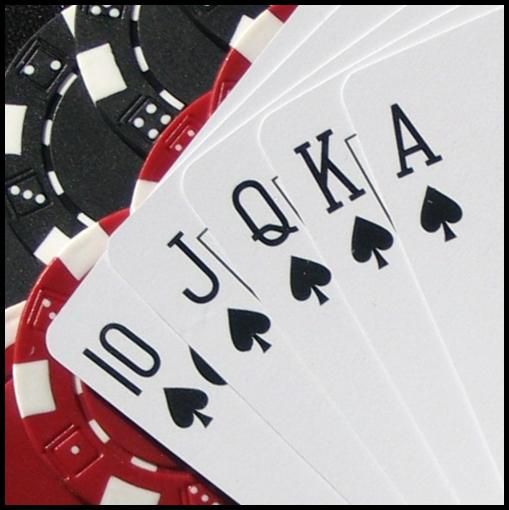poker a game of chance or skill?
poker a game of chance or skill?
Any player worth a couple of deuces will let you know that poker is a talent based contest. In the expressions of Lancey Howard, the magnificent expert in exemplary film The Cincinnati Kid, everything's tied in with "taking some unacceptable action at the ideal opportunity" – a scrap of intelligence he conveys in the wake of beating the Kid's full house with a straight flush, a blend of hands with chances that have since been determined to be more than 20-million-to-one. casino site
Chris Moneymaker, victor of the 2003 World Series of Poker Main Event and most likely the best illustration of nominative determinism in the game, once commented:
The excellent thing about poker is that everyone figures they can play.
Furthermore, he's right.
Do specialists have something to add to public discussion?
Online poker rooms, which in 2013 alone created an expected £2.8 billion in gross rewards worldwide, draw in large number of amateurs whose evaluation of their own capacities bears little connection to the real world.
Normally, there has never been any uncertainty that karma has an influence. The previously mentioned newbies wouldn't stick around for long on the off chance that it didn't. Similarly, it is unusual to reject that some proportion of expertise should be involved – if not for what reason would a few contenders win more reliably than their opponents?
Chance versus expertise
In any case, the key inquiry is whether one component rules the other. The thinking is sufficiently basic: on the off chance that possibility overwhelms expertise, poker is a shot in the dark, and assuming ability rules possibility, poker is a talent based contest. This is the thing that I set off to decide in research as of late distributed in PLOS One, with associates Rogier Potter van Loon at the Erasmus University Rotterdam and Martijn van nook Assem at VU University Amsterdam.
Drawing on a data set of 456m player-hand perceptions from a year of internet games, we initially researched how predictable player execution was. This uncovered significant proof of the job of expertise in fruitful play.
For example, players who positioned in the best-performing 10% in the initial a half year of the year were over two times as logical as others to do also well in the following a half year. Also, players who completed in the best-performing 1% in the primary portion of it were multiple times almost certain than others to rehash the accomplishment in the subsequent half. In the mean time, players who fared seriously from the beginning proceeded to lose and barely at any point transformed into top entertainers.
The point here is that exhibition is unsurprising. In a toss of the dice there would be no connection in the rewards of players across progressive periods, while there would be in a talent based contest. So we know without a doubt that poker can't be a round of unadulterated possibility. Overseas Casino Sites
Poker-made tycoon, Victoria Coren. Matt Crossick/PA Wire
The tipping point
Yet, that actually leaves the vital inquiry of whether expertise rules possibility. To analyze this we ran recreations contrasting the exhibition of talented and incompetent players. We discovered the tipping point: talented players can hope to show improvement over their generally untalented partners somewhere around 3/4 of the time after 1,471 hands have been played.
At the end of the day, poker turns into a talent based contest after around 1,500 hands. To place this into point of view, most internet based players are probably going to play 1,500 hands in 19 to 25 hours – and not exactly that in the event that they play various tables simultaneously.
Obviously, dedicated players wherever may feel leaned to commend this disclosure. They can relax in the fulfillment of realizing the game they love requests and rewards authentic capability and that in the end ability and cleverness will normally win over nothing but karma.
Legitimate ramifications
Be that as it may, the issue is about more than approval and gloating freedoms. You may well ask why specialists are investing their energy figuring conditions established in the heap intricacies of Texas Hold Them. The explanation? Regardless of whether poker is seen as a toss of the dice or a talent based contest has conceivably major legitimate ramifications.
Questions encompassing poker's case to being a talent based contest have formed enactment for quite a long time. Players in the UK right now pay no duty on their rewards, which is uplifting news for everybody from the most unassuming internet based tyro to any semblance of author and TV moderator Victoria Coren Mitchell, whose vocation profit on the expert circuit surpass £1.5m.
In certain nations what are seen to be shots in the dark are dependent upon a lot harder locale: in many US states, for instance, online poker has been basically illicit since the death of the 2006 Unlawful Internet Gambling Enforcement Act. casino online poker
All of this could change if policymakers notice these discoveries that show the inverse. Indeed, even without them, the American general set of laws has effectively contended the case a few times over, with decisions maintained, upset and maintained once more. Maybe fittingly, there's a dreadful part of cash in question and we can anticipate that the debate should thunder on, as new proof becomes visible.

%20(2).jpg)


Comments
Post a Comment